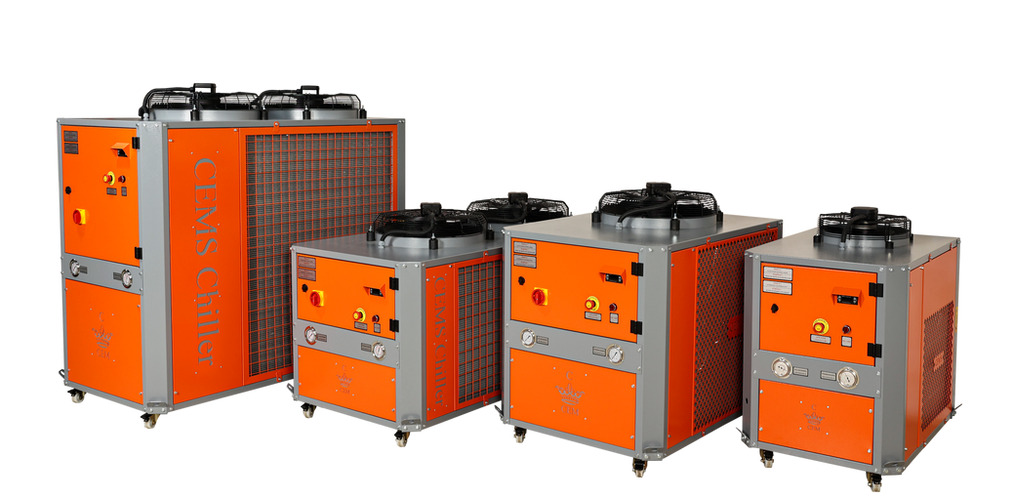Air-cooled chillers are important equipment widely used in industrial and commercial cooling systems. These systems perform heat transfer by cooling the refrigerant with air thanks to the fans in the condenser. In this way, the desired temperature level is provided in environments that need cooling.
Basic Working Principle of Air Cooled Chillers
Air-cooled chillers mainly consist of the following components:
- Compressor: Increases the pressure and temperature of the refrigerant by compressing it.
- Condenser: The high-pressure and temperature refrigerant is brought into contact with the outside air by fans, and heat is released during this process.
- Expansion valve: Allows the refrigerant to pass into the liquid phase by reducing its pressure.
- Evaporator: Low-pressure liquid refrigerant evaporates in the evaporator and draws heat from the environment.
Thanks to this cycle, cooling water or cooling air is given to the system as cooled from the evaporator.
Air Cooled Chiller Types
Air-cooled chillers are divided into various types according to different features and areas of use. Some of these are:
- Centrifugal Chillers: Used in large facilities requiring high-capacity cooling. They have high energy efficiency and are generally preferred as an alternative to water-cooled chillers.
- Piston Chillers: Used in smaller capacity systems. Since they have a modular structure, they can be easily adapted to different needs.
- Screw Compressor Chillers: They offer high efficiency and a wide operating range. They can be used in both small and large facilities.
- Scroll Compressor Chillers: They stand out with their silent operation and high efficiency features. They are preferred in environments such as office buildings and hospitals.
Advantages of Air-Cooled Chillers
- Ease of Installation and Maintenance: They have a simpler structure than water-cooled chillers.
- Flexibility: They can easily adapt to different cooling loads.
- Environmentally Friendly: Reduces cooling water usage by dissipating heat directly into the atmosphere.
- Long-lasting: They can operate for many years without any problems if properly maintained.
Selection of Air-Cooled Chillers
When selecting an air-cooled chiller, the following factors should be considered:
- Cooling load: The size of the area the system needs to cool and the heat load.
- Operating conditions: Ambient temperature, humidity and other environmental factors.
- Energy efficiency: Energy consumption and total cost of ownership of the system.
- Noise level: Noise limitations in the working environment.
As a result, air-cooled chillers play an indispensable role in industrial and commercial cooling systems. Thanks to their different types and advantages, they offer suitable solutions for all types of cooling needs. However, the factors mentioned above must be carefully evaluated for the right chiller selection.













